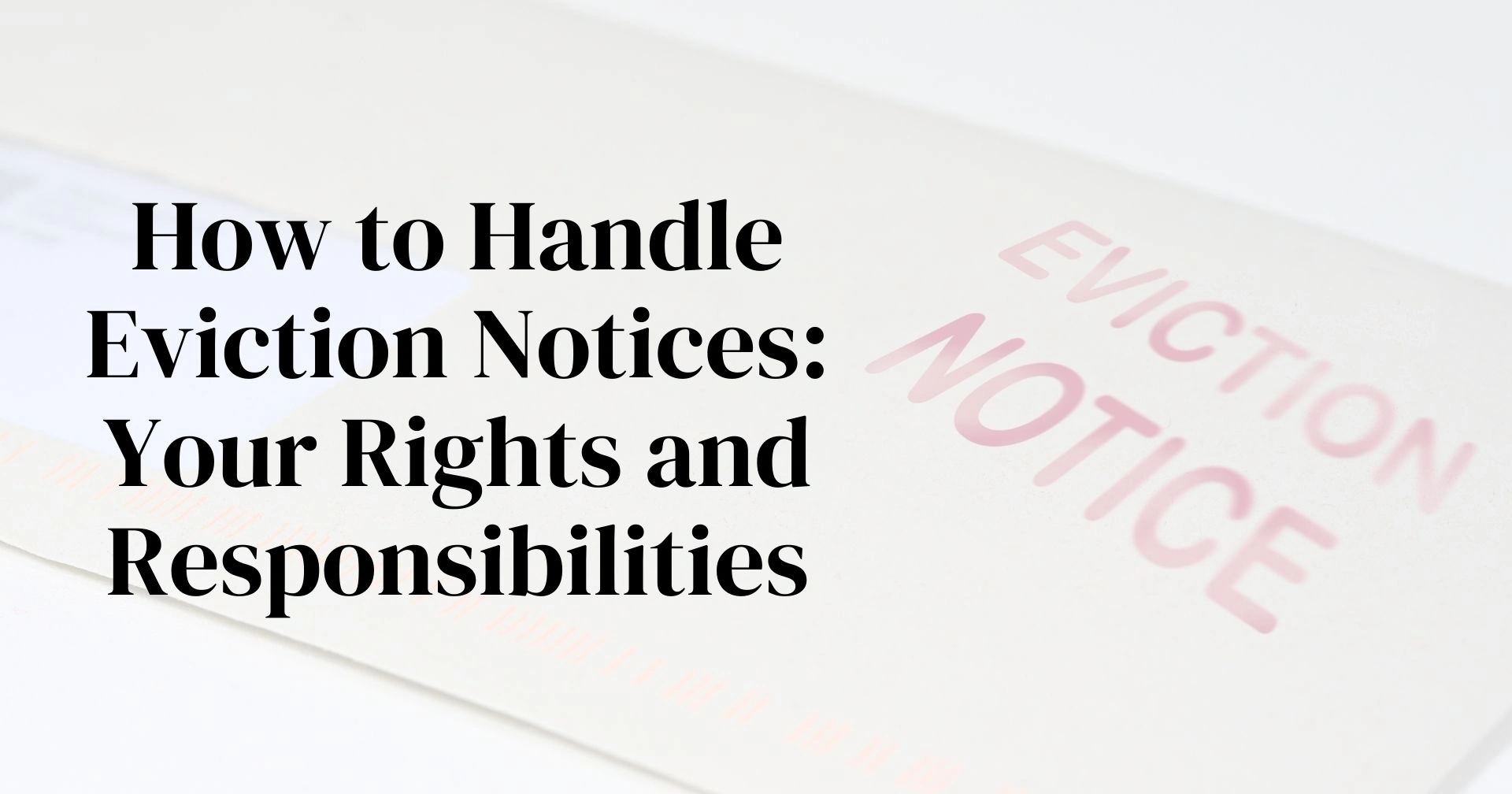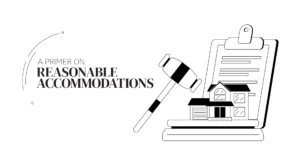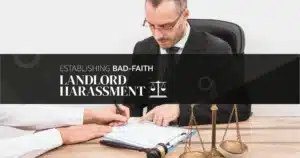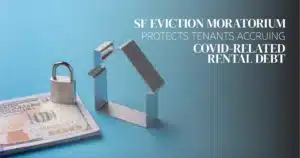Eviction notices are scary. They can disrupt your life. That’s why many courts in California strictly enforce the law and evidentiary requirements in eviction cases and require the landlord to dot every i and cross every t to get an order of eviction.
And if you’re struggling to make ends meet and fall behind on rent, the worst thing that can happen is receiving an eviction notice.
Suddenly, you find yourself racing against time, trying to figure out how you can come up with cash to stay where you are living.
Panic might set in if you think it’s almost impossible to arrange.
Let’s be real: You do not want to have to rush to pack up your belongings and move out, do you?
Sounds familiar? If yes, you’re definitely not alone. This post serves as your support when dealing with eviction. It’s incredibly tough, especially if you have your kids involved.
This post aims to ease your burden with insights and options that help you avoid eviction. It will guide you through the eviction process to prepare for whatever comes next.
Grab a coffee, and let’s dive in!
Let’s Start with the Basic Understanding of Eviction Notices
If you live in a rented house in CA, your landlord might hit you with an eviction notice, a formal document informing you that you must empty her premises.
Strictly speaking, the word ‘evict’ means the process of a cop showing up to give you the boot. It is illegal for a landlord to toss you out by herself. She needs a court order, known as “unlawful detainer judgment,” before the cop will do it (see Xu v. Ghigliotti).
There are a variety of reasons that she could send it to you, like non-payment of rent or lease violations.
While this whole process looks scary, knowing the finer points can help you sail through it.
There are various types of eviction notices. Each comes with a specific set of rules.
All you have to do is to get cozy with these nuances; it will empower you to respond to such notices well and dodge that eviction bullet.
Common Reasons for Eviction
Now we have the basic understanding of eviction notices. Let’s jump straight into the most common reasons for eviction.
– Non-Payment of Rent
This issue is perhaps one of the toughest battles you’ll encounter in the rental arena. Your landlord will send you an eviction notice if you pay your rent late or, even worse, do not pay at all.
In other respects, you may not create any problems; you just can’t seem to get the rent in on time.
This nagging problem doesn’t go away easily. Your landlord gives you a few days to pay the outstanding amount. If you fail to do so, the landlord may proceed with legal action.
So, you must chat with your landlords if you face financial issues. A little open dialogue can work wonders and prevent eviction.
– Lease Violations
Sometimes your failure to pay the rent is not a ground to reclaim the property even though it’s a breach of the terms of the lease.
Such violations occur when you fail to follow those terms – think unauthorized pets, crashing the party, noise levels, or illegal activities [Civil Code Section 1946.2(b)(1); Code of Civil Procedure Section 1161 (4)].
When your landlord catches such breaches, they may whip up an eviction notice (or send a typical “cure or quit” notice). This gives you the chance to resolve the problem or empty the house (see Borger Management, Inc., v. Nelson-Lee).
All you have to do is to know what’s outlawed. Talk to your landlords if any issues arise.
– Expiration of Lease
Most lease agreements come with a handy little guide on how the landlord expects you to leave the property.
Lease expiration occurs when the clock runs out on your agreed-upon rental term. If you haven’t renewed or signed a new lease, and your landlord continues to accept monthly rent after the termination date (Civ. Code § 1945), it will automatically convert fixed-term tenancy to a month-to-month tenancy. Your landlord may still send you an eviction notice.
So, you must be aware of your lease expiration dates. Talk to your landlord. Give her a heads-up if you intend to renew or move out.
No one wants to leave a rented house on bad terms, do you? So, it’s always a good idea to chat with your landlord. It would turn your potentially awkward transition into a smooth exit or a seamless renewal.
Know Your Rights
You must be aware of your rights as a tenant.
Did you know that various federal, state, and local laws that ensure fair treatment and due process protect you?
How? Well, the law requires your landlords to give you proper notice before sending an eviction. You have the right to contest it in court if you think it isn’t fair.
Your best bet is to get cozy with your rights. It will empower you to stand up for yourself. And, when you’re in doubt, it’s better to consult local authorities or get legal aid. Think of them as your housing GPS who will guide you through a legal maze.
Tenant Rights Under the Law
– Overview of Tenant Rights in CA: Almost all city courts in CA share a common goal of protecting you as a tenant from your landlords. So, you must know your rights to resolve landlord-tenant disputes.
California has a legal toolkit that outlines your safety net, including requiring proper eviction notice and ensuring a secure living environment. When you have a good understanding of these rights, you become your best advocate.
– Right to Proper Notice: You have all rights to receive a heads-up before your landlord sends you the eviction notice. Be it for the non-payment of rent or a breach on the lease term. The duration of that notice may range from a few days to a month. This period would give you a chance to sort out the issue or prepare for legal action.
– Right to Contest the Eviction: If you’ve got a feeling that you’re unfairly booted, you’ve all rights to contest an eviction in court. All you have to do is collect your evidence, such as rental agreements and payment records, to support your case.
This way, you’ll get the opportunity to negotiate with your house owner or secure some extra time to find a new place. After all, none of us wants to feel rushed.
– Right to a Habitable Living Space: Let’s be real: We all do not want to live in a habitable space. It’s a place that meets our basic health and safety needs (like heating, plumbing, etc.).
If your landlord isn’t keeping up, you can request repairs. If they still do not respond, they should take legal action. It’s your basic right to have a safe, livable environment.
Local Laws and Regulations
– Why Local Housing Laws?
The world of renting is both wild and wacky in California. You must understand local housing laws. It’s your secret sauce to float through that complex world.
Why? It’s because rules vary from San Diego to San Francisco. Knowing your rights would help you learn everything from the eviction process to what your landlord can and can’t do with you. After all, you do not want to be a tenant lost in the legal sea. Do you?
– Know Your Resources
Think of local housing authorities and legal aid organizations as your lifebuoys. These two are invaluable if rental waters get choppy. And you’ll get all the information on your rights, available programs, and the ins and outs of housing laws.
But it doesn’t stop here: You’ll get free or low-cost legal advice from legal aid organizations. It would help you decode your rights and float through the eviction maze. This way, you’ll be able to stand up for yourself!
Responsibilities as a Tenant
What to Do When You Receive an Eviction Notice
- Do whatever you can, but don’t panic. Stay calm; otherwise, you’ll make mistakes. So, take a deep breath. Respond effectively and keep your rights intact.
- Read the notice carefully! You must read it like the plot of your favorite movie. Dig deep to grasp the reasons behind it. No two eviction notices are the same. Each has its own set of instructions. Read it carefully. This way, you’ll be able to respond to it smartly and avoid problems.
Responding to the Notice
Your Options
When you get the eviction notice, you’ve got three options. You can pay the rent, dispute it if you think it’s unfair, or leave the house. Each has its own consequences. So, you must weigh your selection wisely. It would help you choose the path that works for you.
Document All Communication
Keep a record of it. Why? You’ll have proof of what went down exactly if you’ll have to contest the eviction. So, jot down every email, text, and chat.
Steps to Take After Receiving an Eviction Notice
Gather All Your Essential Documents
List of essential documents:
- Lease agreement (that outlines your rights and responsibilities)
- Records of payment (to prove that you’ve been a responsible tenant)
- Any discussion with your landlord (every text, email, or message is vital)
These documents will help you build a strong case. So, don’t skip it.
Consult Legal Aid
- When and how to seek legal advice (how about the local organizations we discussed above?
- Find affordable legal resources (check free or low-cost services tailored to tenant issues).
Attend Court Hearings (If Necessary)
If your case goes to court, get ready for a formal affair. A judge will preside over the scene. He or she will hear both sides and review proofs.
All you have to do is present your case well by organizing your documents, practicing what you’re going to say in court, and remaining calm.
Possible Outcomes
The two outcomes are either you win or lose.
Winning
The court will dismiss the case straight away if you win. You can then stay in that home, but you must talk to your landlord about this triumph or any lingering issues.
Losing
If the outcome isn’t in your favor, your landlord might get the green signal to proceed with the eviction. But don’t panic. You must start looking for a new place. It would reduce your stress and help you avoid the dreaded homeless label.
Conclusion
So far, we’ve learned that you must understand your rights and responsibilities as a tenant in California. It’s your weapon in your battle against eviction notice. Because let’s face it: None of us wants to get caught off guard when it arrives like an unwanted guest.
Think of an eviction notice as a bump in the road called life. It doesn’t end your journey. With the right information and support, you can tackle many issues before they turn into a full-blown crisis.
So, stay informed. Keep those lines of communication open, and remember: eviction doesn’t define who you are! There’s always a way forward!






